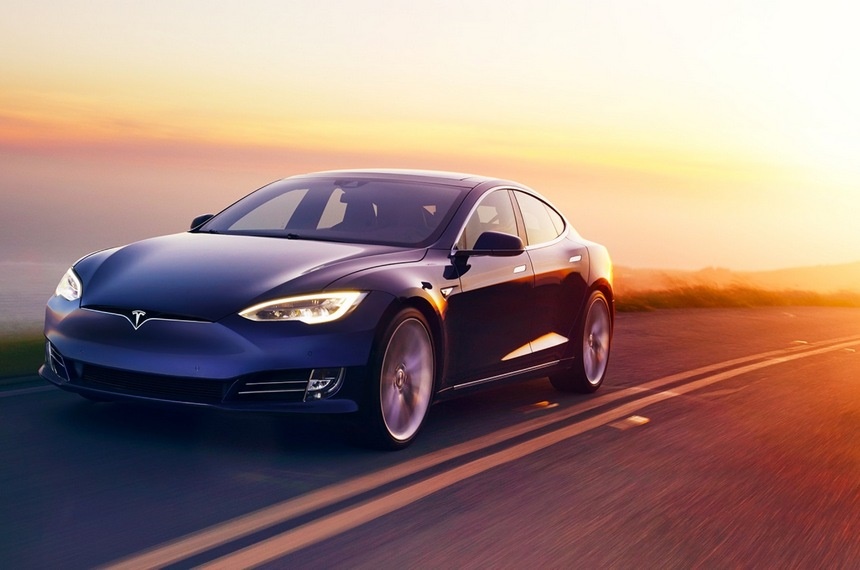
Inspiration from beyond the ocean: Elon Musk reminds us of the meaning of CSR
To accelerate the advent of sustainable transport by bringing compelling mass market electric cars to market as soon as possible. (Tesla mission statement)
We often see, both in CSR and in social entrepreneurship, old goods in a new coat, something that has been here before, has already been done, but got dusted off. Often, we see projects that impact a life of an individual. And these are great inspirational steps in promoting social responsibility and civic engagement. However, it shouldn’t be forgotten that when we work on lowering our carbon emissions or promote inclusiveness in a workplace, we don’t aim for influencing one office space. We hope that somehow such activity or behaviour will become the standard.
Such large-scale change requires a systemic shift. And this can be done by a socially responsible business even though sometimes it seems daunting. No one seems to be better at it nowadays than Elon Musk, also called “real-life Iron Man” for his wealth and involvement in many advanced technologies.
While Musk owns, or owned several businesses, I wish to attract the attention to the one most frequently connected to him over the years – Tesla Inc. Musk has seen a broken system. By rough estimate we make 100 million cars per year with 2 billion cars already in use. They run on petroleum, a resource that is mercilessly finite and has a negative impact on our environment as well as the international political situation. In this climate, Musk invested his wealth as well as personal funds into the foolish idea of founding a car company – an electric car company, that first needed to figure out how to make an electrical car capable of competing on the market.
The first model cost over 100,000 USD. Hardly a systemic change or even a social business. Those few who could afford such a car couldn’t be counted as impactful on the environment. However, Musk invested this money into making a cheaper electric car. And then did it again. And again; the price of the cheapest Tesla is now as low as one third of the first model.
The next problem proved to be the inability to satisfy the market. I have mentioned the 100 million a year car output. In 2016 Tesla made less than 100 thousand cars. As an answer to this, Musk took a step that baffled basically everyone involved and is counterintuitive to what common sense tells us of how to do business. He released all the Tesla patents to everyone who would make electronic cars in good faith, which has proved a slick move as the Tesla stock went up and Musk also owns a company that makes parts for electronics cars.
Not only are these cars powered by solar energy, but Tesla works on complete automatization to provide better safety, a car-sharing system to lessen the production needs and plans a foray into public transport.
Furthermore, the inspiration of Tesla does not come only from their dedication to the environmental protection (which might be more of a humanity protection, since we need a place to live), but from Musk’s engagement with his stakeholders and the way he gets them in the first place. For example, Musk is known for going to the people who don’t want his product at all and finding out what needs to be changed to persuade them. He solicits negative feedback to work on bettering his business and his ability to learn from mistakes seems to be proven by his fending off more than one insolvency. When the number of workplace accidents increased, he took measures to reduce it again, but also requested to personally meet every injured worker going forward, on top of meeting with safety team every week. He also promised to go production line and try the tasks his workers do, something he asked his managers to do as well.
Tesla isn’t perfect and neither is its CEO Elon Musk. He has been described as too hands on, company is not always clear on short term plans and no one is sure if Tesla can scale its production. Ironically, it’s Musk’s own cult of personality that reduces his own inspirational story. He is seen as someone unique, someone special whose example cannot be followed. His derring-do is understood and excused, because he is Elon Musk, the man that promised to solve Australia’s power problems in a month otherwise it’s free and intends to put a man on Mars, to which he refers as a fixer-upper planet, within 20 years.
And yet, if Musk’s words as well as actions are to be believed, he wouldn’t like anything better than people following his example at least a little. Musk took on one of the greatest flaws in the whole system. He should be seen as an example of an approach of identifying the root cause of a problem and finding a creative way to solve it and involve others, not by relying on activism, but product, making sure his company prospers as well as helps.
Sources:
Authors: Tatiana Čaplová, Karel Doleček / Pontis Foundation

Follow us on